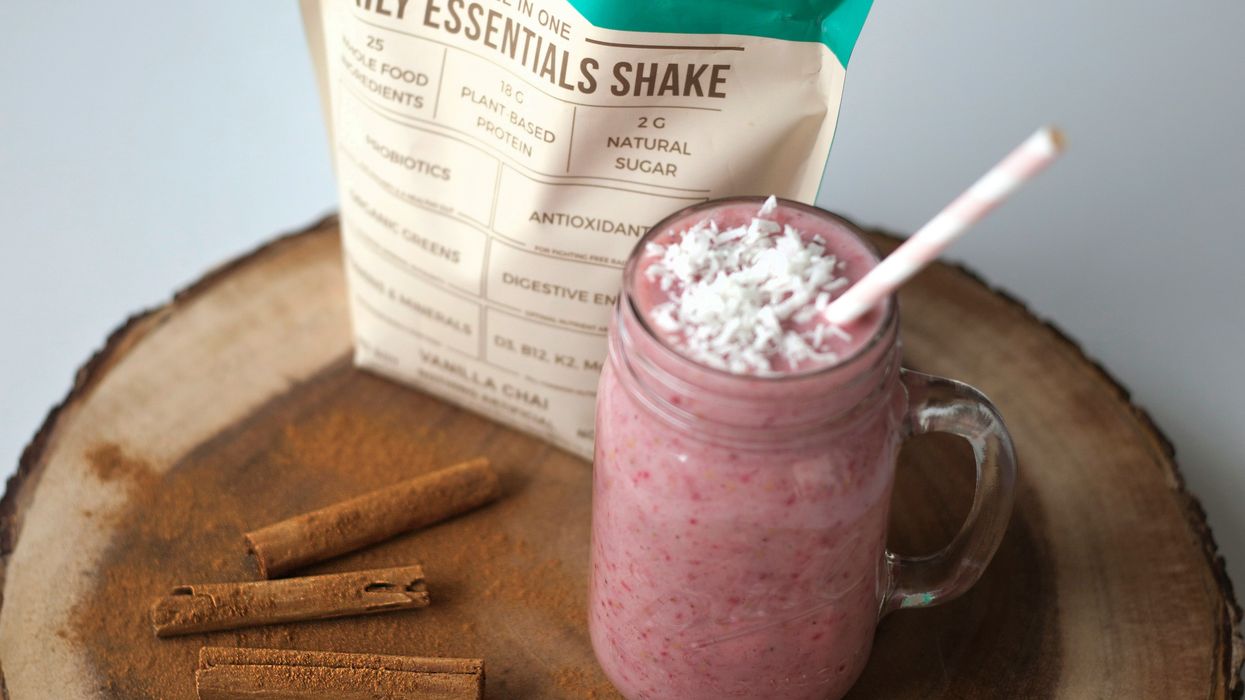Inflammation stands to be the body’s inexplicable yet important healing process for any injury, infection, or toxins that enter the body. Yet, when considering inflammation from a long-term perspective, it may prove dangerous to overall human health and lead to problems like Cardiovascular disease, diabetes, and even autoimmune disorders. But even in these unfavorable circumstances, there is still the possibility for relief since incorporating the right diet and lifestyle provides immense benefits in the control of inflammation.
By identifying the specific causes of inflammation, inflammation itself, and what possibly can be done to mitigate it, taking control of your life and feeling healthy shouldn’t be much of a challenge.
What Is Inflammation?
Inflammation could be perceived more clinically by portraying it as the body's natural response to harmful entities like infections, injuries, or even toxic substances. Essentially, inflammation aims to aid an injury that the body suffers by increasing blood flow to make white blood cells and immune proteins help and provide aid.
There are two main terms, under which we can classify the inflammation rheumatologists define:
● Acute inflammation- A short-term response when there is some injury or infection is referred to as an ache in inflammation, which may show symptoms like pain, swelling, fever, and redness.
● Chronic inflammation- When there is long-term tissue damage caused due to an overactive immune system, it is referred to as chronic inflammation. Further, rheumatologists classify the damage as arthritis, cancer, and heart disease.
● Unhealthy habits such as poor nutrition, a sedentary lifestyle, and constant stress can lead to long-term body inflammation which makes it crucial to follow inflammation-preventing practices.
Inflammatory foods
Inflammation can be worsened, or reduced by diet, which can be extremely beneficial or harmful. Certain foods are known to activate the inflammatory response which can negatively affect one’s health. Removing these foods from one’s diet can assist in boosting the immune system and reducing inflammation. The following are some of the foods that cause inflammation:
1. Refined and Processed Carbs
White bread, pasta, and pastries increase blood sugar levels causing inflammation. They also have low fiber content which is not good for the digestive system and causes inflammation.
2. Sugary snacks and drinks
Consumption of excessive sugar is the main factor for chronic inflammation. Sodas, sweet candy, flavored coffee creams, and desserts lead to difficulty in insulin usage, excess body fat, and high levels of inflammation-causing cytokines.
3. Trans fats and processed oils
Fried foods, margarine, and snacks all have partially hydrogenated oils. These highly processed vegetable oils, such as corn and soybean oil, are always bad for people's health, especially their hearts because of the inflammation they cause. These oils also have a large portion of omega 6 fatty acids, which alongside inflammation is also bad for us if overconsumed.
4. Processed and red meat
Hot dogs, bacon, and sausages are as detrimental as any “fast food.” One of the biggest factors is their high levels of advanced glycation end products (AGEs) which cause an inflammatory response and devour the body from the inside out. Having high quantities of red meat triggers a person's inflammatory diseases and puts them at a greater health risk.
5. Alcohol and artificial additives
Chronic inflammation is a condition that stems from excessive alcohol consumption. As with everything else, moderation is key. This leads to the disruption of gut health and a weakening of the immune system. Meanwhile, artificial sweeteners, food colorings, or preservatives can trigger an inflammatory response in people who are more susceptible to it.
Inflammation can wreak havoc on your body hence avoiding the above listed foods will place individuals on the correct track towards a healthier lifestyle. But it is equally important to understand the ingestion of anti-inflammatory foods need to be ingested too. Be sure to avoid these foods that cause inflammation.
How to Use Diet to Reduce Inflammation in the Body
Incorporating anti-inflammatory foods into your diet routine can give your body a helping hand in fighting off chronic inflammation, which lowers the risk of developing diseases. In this article, we discuss the most effective food constituents to add to your diet.
1. Fruits and Vegetables
Fruits and vegetables, especially leafy greens, berries, tomatoes, and citrus, are rich in vitamins, antioxidants, and fiber that greatly contribute to the mitigation of inflammation. Some dark-colored fruits such as blueberries and cherries possess high levels of polyphenols which fight off oxidative stress and inflammation.
2. Healthy Fats
Foods that contain healthy fats, such as avocados and olive oil, as well as Omega 3 fatty acids found in fatty fish (salmon, sardines, and mackerel), walnuts, and flax and chia seeds, are known to lower inflammation and improve the health of the heart. In addition to these, walnuts and chia seeds also fight inflammation.
3. Whole Grains and Legumes
Beans, lentils, brown rice, and quinoa are rich in fiber and other nutrients vital for gut health and reducing inflammation. Whole grains do not spike blood sugar levels, unlike refined grains, and also lower inflammatory markers.
4. Nuts and Seeds
Sunflower seeds, along with almonds and walnuts contain high amounts of healthy fats, vitamins, and antioxidants, which aid in fighting inflammation. Besides, these nuts are healthy snacks.
5. Spices And Herbal Plants
Garlic, turmeric, ginger, and cinnamon have profound benefits as anti-inflammatory agents. Among them, turmeric stands out especially due to curcumin. It may decrease chronic inflammation and the risk of inflammatory diseases due to its biological activities.
Lifestyle Adjustments to Help with Inflammation
Diet isn’t the only aspect that has an impact on inflammation. Your external lifestyle also contributes immensely to achieving homeostasis within the system. Here are some lifestyle modifications that support such goals:
1. Exercise every week
Moderate bodily movement or exercise like yoga, running, or brisk walking for 30 minutes a day has a positive impact on the body in defeating inflammation. It also assists in balancing the immune system and helps in reducing the long-term inflammatory markers in the body.
2. Control Stress Levels
Chronic stress can lead to elevated levels of cortisol in the body which causes inflammation. Therefore, some inflammation reduction techniques like meditation, deep breathing, or journaling can not only lower inflammation but can also enhance well-being.
3. Sleep More
Sleep deprivation also increases inflammation and lowers immunity. Developing healthy sleeping habits such as a good night’s sleep of 7-9 hours along with a proper sleeping schedule enhances the resting and recuperating abilities of the body.
Be sure to follow these ways on how to reduce inflammation in the body.
Chronic inflammation causes numerous modern health problems, but it is manageable with diet and lifestyle changes. Eliminating inflammation-causing foods from your diet, eating healthy food with good nutrients, and other lifestyle changes will help reduce inflammation and positively impact your health.
Learning how to reduce inflammation in the body is important for disease prevention and long-term health. Simple daily changes like eating whole foods, exercising, avoiding stressful situations, and getting enough sleep have a tremendous impact on reducing inflammation and improving overall life standards.
An individual can take charge of their health and practice habits that encourage vitality and longevity with complete ease and comfort.
References
- Harvard T.H. Chan School of Public Health. (n.d.). Inflammation: A unifying theory of disease. Retrieved from https://www.hsph.harvard.edu/
- National Institutes of Health. (2023). The role of diet in preventing and reducing inflammation. Retrieved from https://www.nih.gov/
- Mayo Clinic. (2022). Chronic inflammation and its impact on long-term health. Retrieved from https://www.mayoclinic.org/
- American Heart Association. (2021). How inflammation affects cardiovascular health and disease risk. Retrieved from https://www.heart.org/
- Cleveland Clinic. (2023). Anti-inflammatory diet: What to eat and what to avoid. Retrieved from https://my.clevelandclinic.org/








 Karla Mingo believes that her greatest gift as a cancer survivor is the ability to live with gratitude and thankfulness.
Karla Mingo believes that her greatest gift as a cancer survivor is the ability to live with gratitude and thankfulness.



